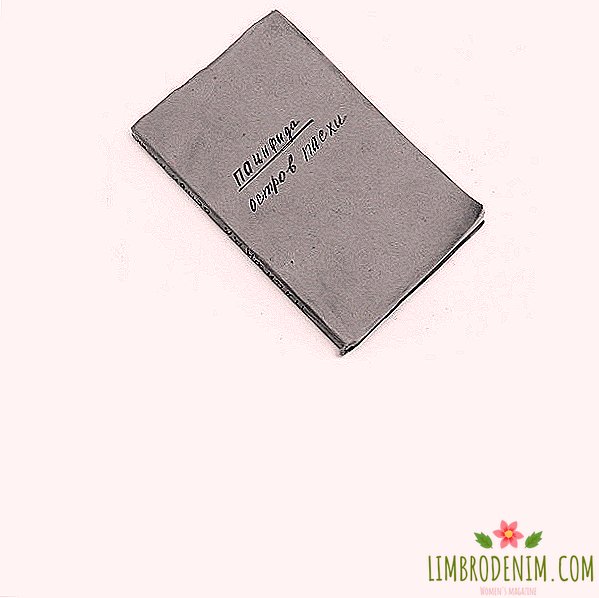"People shy when I cough": I live with cystic fibrosis
Cystic fibrosis is a genetic disease in which the normal functioning of the mucous membranes is disrupted, this is primarily reflected in the processes of respiration and digestion. A person with this disease needs constant inhalation of drugs, drugs for digesting food, antibiotics for preventing infections; frequent exacerbations and hospitalizations make it difficult to learn and work. To all this, add the attitude of others: people may be afraid of being infected by a coughing person or blamed for “unsportsmanship”. The average life expectancy of people with cystic fibrosis in Europe is a little over thirty years. Nastya Katasonova is twenty one and she told how she lives with such a diagnosis and does not plan to give up.
Text: Daria Shipacheva
Broken gene
- In 1997, my family lived in the Rostov region - in the small town of Volgodonsk. By coincidence, I was not born at home, but in Moscow - and I think that I was very lucky with that. In those days, doctors in my hometown could not have known anything about cystic fibrosis, and in Moscow I was quickly diagnosed correctly.
In many children, this disease is diagnosed in the first days of life - due to acute intestinal obstruction. So it was with me: a few days after the birth, my stomach was swollen, I could not go to the toilet. On the ninth day, I was admitted to the hospital and underwent surgery — in order to remind you of this, I was left with a large scar across the abdomen. All my childhood, I regularly lay in hospitals, at least once a year. At first, I didn’t understand that something was wrong with me - I just knew that I was coughing a lot and I needed to heal.
When a person has cystic fibrosis, the gene is “broken”, which is responsible for the normal functioning of the external secretion glands - this affects, in particular, respiration and digestion. By the way, cystic fibrosis is the most common hereditary disease: very many people (almost every twentieth) are carriers of the mutation, and if two such people lead a child, it can manifest itself in him. That is why, before you think about children, it is recommended to carry out an analysis for the carrier of the most frequent genetic mutations.
There are three forms of cystic fibrosis: pulmonary, intestinal and mixed. I (and most of those with whom I lay in hospitals) - mixed. But problems with the lungs are more dangerous: sputum regularly accumulates in them, infections develop - one has to take antibiotics, take medications through droppers, otherwise the condition begins to threaten life.
I know that there are such families where they are trying to make a secret out of cystic fibrosis and not tell teachers and other children about it. But I still could not be "like everyone else" - so why pretend?
Somewhere at the age of five, I realized that I didn’t just have “frequent bronchitis,” that my health was worse than that of other children. But I still took it calmly - the trip to the hospital was like an extraordinary vacation and a summer camp at the same time. At the beginning of the two thousandth children with cystic fibrosis lay in the general wards of four people. We were friends, talked, we had fun. Now for this, probably, the head physician would be fired: people with such a diagnosis cannot be near, especially in a locked room, and even more so during an exacerbation. We are particularly susceptible to infections that are not affected by a healthy person — for example, a staphylococcus or some fungus can bloom in the lungs, and we can easily infect each other. Everyone is sick with some kind of “their own” infection, and picking it up from a roommate is a trivial matter.
By the beginning of school, we moved to Moscow: in Volgodonsk, I did not understand anything about my illness, they gave me the wrong medicines. With age, my condition began to deteriorate: I had to go to the hospital a couple of times a year, and at home I had to inhale every day with a special device - in order to clear my throat and let the sputum return.
When I was about ten or twelve, we were transferred with other patients from the RCCH department, where we usually lay, to another building — there was a repair in our building. And then everything changed. We were already settled in chambers of two, and they were all put on masks. Parents were forbidden to communicate with each other outside the ward, and for us to go out. We realized that something was happening - something very serious and bad.
There were two compartments in the compartment. In one, there were children with a staph infection - this is the most "lite" option - and with a pyocyanic rod, an already more dangerous infection. And the second compartment was for children who became infected with an infection called "septic" (Burkholderia cepacia, a complex of bacteria that are resistant to different antibiotics and dangerous to the condition of the lungs. - Note Ed.). Everybody was afraid to get into the "separation" - it was actually a one-way road. From there to us have not returned. Then for the first time I began to hear about the death of children with whom I lay in hospitals. At first - just a familiar girl, then my friend - I became really scared. Can I die too? Only then came the realization of how serious my illness is.
"How to live" and "how not to die"
How much fun and good I was with fellow sufferers in hospitals, just as difficult with healthy children. Somewhere before the seventh or eighth grade I went to a regular school, although I had a special schedule. I often missed classes because I felt bad or was in the hospital, so I studied half as an external student. I didn’t hide my disease - I didn’t see the point. I know that there are such families where they are trying to make a secret out of cystic fibrosis and not tell teachers and other children about it. I wonder what will happen to such a child, if he is told to run a cross on physical education, will he bend in the middle of a distance and start coughing up blood? I still could not be "like everyone else" - so why pretend? In general, I always openly talked about my illness. But despite this, ridiculous rumors spread around me.
One day, some kind-hearted mother told her child that I bought a disability so as not to go to school. After that, they gave me a boycott: they did not talk to me, laughed and condemned. I had to hide at recess and run to the lesson after the call. And then I began to go to separate classes with teachers, after general lessons.
At some point, it became very difficult for me to study in a regular school, and I completely switched to home schooling. It is great that there is such an option - and I believe that it should be used, and not exhausted to the detriment of health. When I was eight years old, another exacerbation happened in May - and my parents insisted that I finish the school year before I go to the hospital. As a result, part of the lung has subsided and is still not working (the collapsed lung stops filling with air and is turned off from the breathing process. - Approx. ed.). Perhaps, if it were not for this, it would be easier for me to breathe now. I think the desire to "be like everyone else" is not worth such health problems.
I believe that there is no need to be exhausted to the detriment of health. When I was eight years old, my parents insisted that I finish the school year before I go to the hospital. As a result, part of the light fell
On the day of the first exam, I was taken to the hospital with a severe complication, and at that time there was no talk about entering the university. Before that, my mother was seriously ill, and I was caring for her, forgetting about myself. When mom was gone, I turned into a pale shadow: I was seventeen years old and weighed thirty-seven kilograms. I tried to gain weight somehow, but this was completely unsuccessful: because of problems with the intestines, people with cystic fibrosis have poorly absorbed nutrients. We need constant "support" of digestion: I drink a package of enzymes in capsules every day, just to digest regular food.
As a result, I wrote to the doctor, and they sent me to the hospital. They offered two options for additional nutrition: a catheter into the central vein or intestinal stoma. On the one hand, it seems that it is better to choose a catheter: it is less traumatic, it is easier and faster to put it, and who wants to go with a hole in the stomach? But, on the other hand, you can’t even wash your catheter normally - you have to wipe with wet rags or wet wipes instead. At first, I wanted a catheter, but then I asked to install a stoma - although the doctors scolded me for a sudden change of decision.
After the operation was hard. My stomach ached, and I needed to cough up my sputum - and every movement caused suffering. I went for the first week, bending over half and holding my belly, but then it became easier. I connected the device for food delivery to the stoma - with the help of a pump and a special adapter, he sent it directly to the intestines. I was able to gain seven pounds in a week - and finally I felt better.
At the conference for parents of children with cystic fibrosis they said that there are two approaches to the disease: “how not to die” and “how to live”. I want to show by my example how to live
I finally decided that I would not enroll in the university - it was too hard physically, and I did not see the point. I have always loved creativity, so I decided to develop in the field of photography: take more pictures, process them, look for clients. In parallel, I took various side jobs - all sorts of administrative, secretarial positions. I tried to go to the office, but could not stand it for more than a couple of months. So I tried to find a job where I could do everything remotely - or at least not to come every day.
My uncle helped me a lot - he took me to a company that is engaged in car transporters for part-time employment. I have been working there since the age of seventeen: photographing, doing social networks, and so on. Once I met Yulya Maximova, who runs online courses on SMM - we had a shared friend on Facebook from a foundation that helps people with cystic fibrosis. Yulia herself had tuberculosis in childhood, she had one lung removed - and she was very imbued with my story. She took me to her courses with a big discount, and then we became friends - and now she constantly invites me to take photos.
More recently, I have been actively blogging on instagram, and more recently on YouTube, where I talk about my life with illness. I would like to raise awareness of people about cystic fibrosis and give an example to follow - to show that with this diagnosis you can be active and have fun. At the conference for parents of children with cystic fibrosis they said that there are two approaches: "how not to die" and "how to live". I want to show by my example how to live.
Daily routine
In the morning I get up and first cough. I usually do this over the sink - I can stand there for half an hour. If you need to collect sputum for analysis, you can cough up a whole jar. This is all very tiring and in the morning it is depriving some of its strength. Then necessarily - inhalation. Whatever I do, in whatever condition I am, this step cannot be skipped. If I am not at home, I use a portable inhaler, ideally, the procedure should be done two or three times a day. I do not care who thinks what - I have to breathe! Therefore, I can make inhalation, for example, in transport. In shopping centers I usually sit down somewhere in the food court. Once I was asked: "Is this a new hookah?" In general, people, of course, shy away from me - especially when I cough in the subway. Probably, they think something like: "They go there, they infect everyone, it would be better to sit at home and get treated." This is ironic - because these people are much more dangerous for me than I am for them.
In the evenings I, if necessary, connect my device for power. This is not necessary every day, but only when my weight begins to fall. I try to keep it normal - around fifty kilograms. I sleep with the connected device: depending on how thin I am, you can dial from two hundred grams to a kilogram per night. One of the most frequently asked questions to me is: “Why don't you eat ordinary food at all?” Of course, I eat - I just need extra food and extra calories. I joke that I love food so much that I eat it even in my sleep.
If you do not need additional food, I am leaving somewhere or I want to wear a tight dress, then I can plug a hole in my stomach with a special “stopper”
Stoma also raises questions: as far as I am comfortable with it, does it bother me? In principle, I practically do not notice it - except that in transport they are hit at rush hour, then it can shift, and this is unpleasant. Because of this, in crowded buses, I try to get on, and older people are looking at me. And sometimes they aggressively demand that they give up their place: "Look, young, and healthy." So I use it only for food - I go to the toilet as usual. If I do not need additional food, I leave somewhere, or I want to wear a tight dress, I can plug the hole in my stomach with a special “cork” - it will be unnoticeable and will not interfere at all.
I want to say that it is expensive to have pain - we need all these devices, consumables for them, inhalation drugs, enzymes for digesting food, tablets for abdominal pain, antibiotics, probiotics, vitamins. I have a whole separate refrigerator for medicines at home. The state gives out only a small part, and some do not suit me, they cause nausea. You have to buy a lot of things yourself. Fortunately, funds help - some medicines and equipment can be obtained through them. But the funds are sponsored through donations from people, and now the crisis is becoming more and more difficult.
Future
When as a child I was in hospitals with friends, up to ten years old, I had some kind of childhood love. But when I began to grow up, I realized that it was more important for me to invest in myself: develop, build a career, travel. I am not ready to spend my limited resources on another person. Ironically, the guys who need help, salvation and care are trying to get acquainted with me. One here wrote to me that he wants to break on a motorcycle - and I alone can save him. I tried to help such people, but in the end I understood that they do not need help, but I need the energy that I spend on them. I do not like it.
In general, if relationships appear in my life, I will be glad - but I never looked for them and did not seek them. I also don’t think much about my family I don’t even know if I can become pregnant - although some women with cystic fibrosis, I know, give birth. But I take antibiotics every day - is that nine months without them? Yes, I'll suffocate!
Recently, people with cystic fibrosis are offered treatment with a lung transplant. But I do not even stand in line. The risk of such an operation is very high. Conditionally, you will either die, or you will get a second chance - to start from scratch, with new healthy lungs. And I like my old life - and I do not want to put it on the line. I will try to keep my lungs as long as possible, and if the condition becomes critical and there is nothing to lose, I will think about the transplant.





